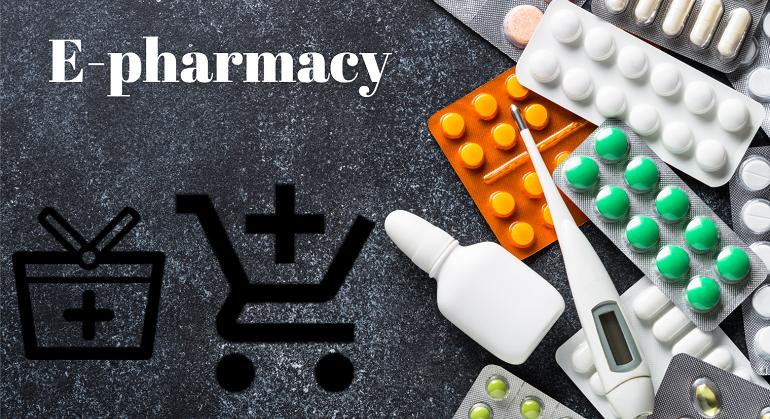After the European healthcare sector revived from COVID-19’s drastic effects, medicare service providers started embracing telehealth assistance. The aim behind this shift is to offer patients a more swift, secure, and seamless treatment solution. Considering this, the European Commission (EU) came up with an initiative named “EU4Health program” with a focus to raise €5.1 billion for transforming their existing operations.
With all the efforts to ensure easily accessible digital medical services, healthcare providers are also facing a severe backlash. Lax security controls, data breaches, insufficient fraud prevention, and compliance risks are some of the few reasons. Therefore, England’s National Health Services (NHS) have made patient verification a strict obligation.
This article discusses NHS patient identity verification guidelines and their scope in the UK’s healthcare sector.
Patient Verification Guidelines by National Health Services (NHS)
Healthcare service providers strive to improve their operations by making digital transformation a part of their system. They have made automated user onboarding, online access to records, e-payments, and virtual medical assistance a reality. However, they also experience a surge in healthcare fraud due to loopholes in their security controls.
Fraudsters use counterfeit identities to avail insurance claims, pay for expensive treatment, obtain prescriptions by impersonating legitimate patients, and data breaches.
Due to an increase in fraud risks, NHS is revamping know your patient regulations to mandate medicare service providers handle information securely. They further should make sure authorised individuals are accessing the records whether they be financial or medical.
-
NHS’s Stance
The NHS has made a login service with an online portal where individuals go through patient identity verification checks to provide their claims. Furthermore, they can submit documents online that serve as supporting evidence for authorisation. With patient verification solutions in place, healthcare centres can swiftly onboard individuals by using OCR for data extraction, ML to ensure authenticity and AI that proves real-time presence.
The initiative taken by the NHS is to improve medical services and their access. This way, healthcare centres can remotely verify patient identity which ultimately builds trust among the masses.
Components of the NHS’s Patient Identity Verification Proposal
NHS works under supervision of the UK government and all issued policies are approved by respective officials. Similarly, know your patient standards are also legally ratified. NHS’s guidelines for healthcare service providers involve the following components:
Vouching – Identity Information Verification
Among the three proposed authentication mechanisms for identifying patients, vouching is the foremost requirement. In NHS’s guidelines, healthcare service providers should put the most emphasis on accurate validation of individuals’ details before allowing them to access digital medical assistance. As data breaches, counterfeit accounts, and false insurance claims are increasing within the UK, the NHS has made efficient patient verification a liability.
Vouching further has the following benefits for medicare service providers:
- Swift, paperless, and remote patient onboarding
- Instant access to online medical records, financial logs, and treatment histories
- Easy to access services for individuals with long-term ailments like blood pressure and diabetes
- Enables General Practitioners (GPs) to verify patient identity and prescribe treatment immediately during virtual consultancy
Identity Confirmation – Vouching Through Question/Answers Process
During vouching, healthcare professionals perform ID verification for pharmacies and the rest of other affiliates through documents. However, in identity confirmation processes, medicare service providers should also authenticate medical documents’ originality. Furthermore, if an individual already exists in databases, vouching becomes slightly different. This is because patient verification gets easier as healthcare professionals will not have to put in additional effort.
Vouching with confirmation also comprises patient age verification as a step to protect minors against the consumption of harmful substances. Where online pharmacies have made drug purchases easier, children deploy cunning techniques to create fake prescriptions and buy restricted medicines.
Identity Documents Authentication
Patients often are unable to submit medical records which makes their identity suspicious. However, they can provide other ID proofs such as driver’s licenses, passports, or bank statements along with a real-time selfie. Know your patient solutions then extract data accurately through OCR which is later analysed and cross-matched across global medical records.
With robust patient verification services in place, healthcare service providers can identify document forgeries, deter false insurance claims, and authenticate transactions through real-time presence assurance. Hence, medicare centres can ensure seamless user onboarding through the UK while staying in line with NHS’s guidelines.
Final Word
NHS is one of the four major National Health Service systems operating within the UK. Being a publicly funded association, it issues guidelines to identify patients. Therefore, for staying put with these requirements, medicare centres must integrate KYP solutions. Know your patient services not only help increase data security and restrict unauthorised access but also build trust among individuals for remote medical assistance.





